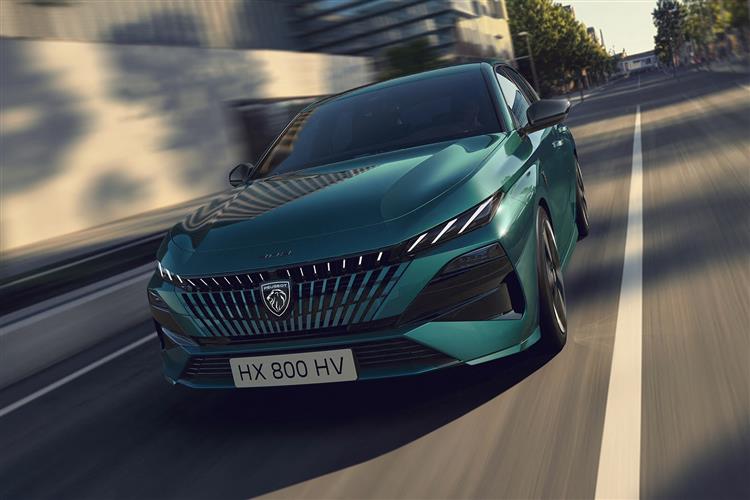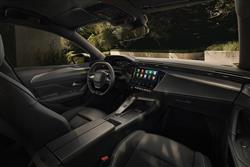LION BAR (some text hidden) SECTIONED_new_peugeote308_2024
By Jonathan Crouch
The improved version of Peugeot's E-308 aims to raise the benchmark for what a family EV can offer. Jonathan Crouch takes a look.
Ten Second Reviewword count: 61
Conventional family hatchbacks that are also full-EVs are relatively thin on the ground, but Peugeot's E-308 hopes to set more of a trend for them, especially in this usefully updated form with a longer-ranging battery. As before, it comes in hatch and estate forms and aims to establish some fresh standards for the kind of car a family EV should be.
Backgroundword count: 163
Something we haven't seen much in the current explosion of full-electric compact cars are EV versions of conventional family hatchbacks. True, if you're looking at either a Volkswagen ID.3 or a Kia EV3, that's essentially what you've got, but both those manufacturers pretend those cars are Crossovers. Here is something much more straightforward, the Peugeot E-308. In terms of conventional EV family hatches, at its launch in 2022 this was the first one we'd seen since the Volkswagen e-Golf was discontinued in 2019. Unlike that car, there's more than one body style, an SW estate offered as well as a 5-door hatch. And developed alongside this model with exactly the same 54kWh battery and powertrain are full-electric versions of its close Stellantis Group cousin, the Vauxhall Astra. This 308 was the first of the two cars to market and in this improved form continues alongside the pricier 308 Plug-in Hybrid model for those wanting to make a more eco-minded choice in this segment.
Engines and Tech Specword count: 274
This E-308 features perhaps the most significant engineering change made as part of this mid-term update package. It still features the same front-mounted 154hp motor, but now trades its old 51kWh (usable-capacity) battery for a slightly larger 55.4kWh package. With the result that EV drive range rises from 254 to 281 miles. This battery powers a front axle-mounted 156bhp motor which will get you to 62mph from rest in about 8 seconds. That's provided you engage most focused of the three available drive modes - 'Sport'; the others are 'Normal' and 'Eco'. As before, it feels quite sporty, thanks to Peugeot's usual (but unusual) 'i-Cockpit' driving position, which sees a dinky little steering wheel that's ideal for wrist-flick manoeuvres. As is normal in an EV, the battery's central lower down positioning minimises the weight downside by lowering the centre of gravity. Ride quality is better than it is on most other compact EVs of this size (and far softer than in the equivalent rather over-firm Vauxhall Astra Electric); you certainly won't be clumping over speed humps and crashing through pot holes in the way we have with some recent small EVs we've tested. And Peugeot's kept wind noise and tyre roar at reasonable levels, so you can get the refinement benefit of that near-silent powertrain. On the top 'GT' model, there's a bit of (rather basic) drive assist technology too, courtesy of an 'Adaptive Cruise Control with Stop & Go' (which automatically maintains your speed to vehicles in front on the highway and when you come across a tailback, will seamlessly bring you to a stop, then when appropriate, automatically start you off again).
To see the full road test text contact us on 0330 0020 227
Pictures (high res disabled)

.jpg)
|
.jpg)
|
.jpg)
| |||
.jpg)
|
.jpg)
|

|
Statistics (subset of data only)
Min |
Max |
|
Boot Capacity (l): |
412 |
608 |



